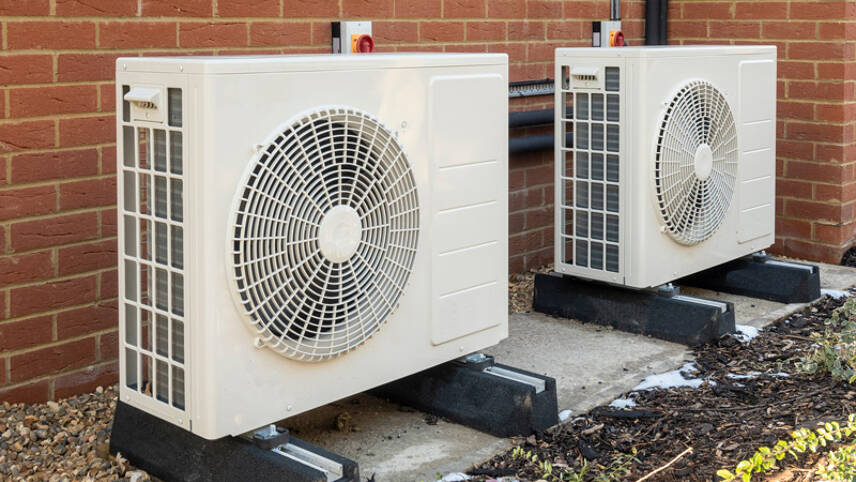Register for free and continue reading
Join our growing army of changemakers and get unlimited access to our premium content

Clean Heat Market Mechanism stipulates that heating manufacturers must progressively increase the proportion of heat pumps in their output.
Ministers set out new building amendment regulations at Holyrood on Monday afternoon (12 June). Included in the document is a commitment to develop regulations ensuring that developers applying for building warrants from 2024 only use heating systems with no direct emissions.
The document rules out the classification of hydrogen-ready boilers as zero-direct emissions heating (ZDEH) options. This is because a decision has not yet been made by the UK Government about the role of hydrogen in home heating. Moreover, hydrogen will likely be used in blends rather than pure, meaning that there will be some emissions resulting from natural gas combustion.
Instead, buildings will either need to be fitted with heat pumps or connected to low-carbon district heating networks.
Scotland’s Minister for Zero-Carbon Buildings, Patrick Harvie, said the change will be “essential” to Scotland’s ability to meet its 2045 net-zero carbon target.
Harvie said: “Along with transport, heating Scotland’s homes and buildings is one of the biggest contributors to our carbon emissions and we know we have to take bold action to meet our climate obligations.”
He added: “It will also mean that people who buy new homes will know that their home is future-proofed against the need to have to switch heating systems in the future.”
Earlier this month, the Energy and Climate Intelligence Unit (ECIU) warned that the UK will need to purchase billions of pounds’ worth of extra gas between 2024 and 2035 than it would have if it had more rapidly deployed heat pumps. The cost could be up to £9bn.
A recent UK-wide heat pump trial was more than ten times oversubscribed, proving that homes are interested in these technologies. The trial, plus other research, found that the biggest remaining barrier to uptake is the upfront cost of a unit and its installation.
A row rumbling in Brussels
In related news, Germany is seeking to weaken a new EU proposal to ban new fossil heating systems in buildings from 2029.
The proposal was first put forward in May 2022, as part of the EU’s response to the energy price crisis and plan for ending Russian fossil fuel imports by the late 2020s.
National representatives, heating experts and ministers are meeting with European Commission President Ursula Von Der Leyen in Brussels this week to attempt to meet a compromise. edie’s content partner Euractiv has the full story.
UPDATE on 14/06: Germany has compromised with the European Commission and is now prepared to accept the 2029 ban.
Ministers had been critical of a Green Party proposal to switch in 2024. As a compromise, it has been agreed to target 65% renewables in the heating mix by the end of 2024, increasing to 100% in 2029.


Please login or Register to leave a comment.